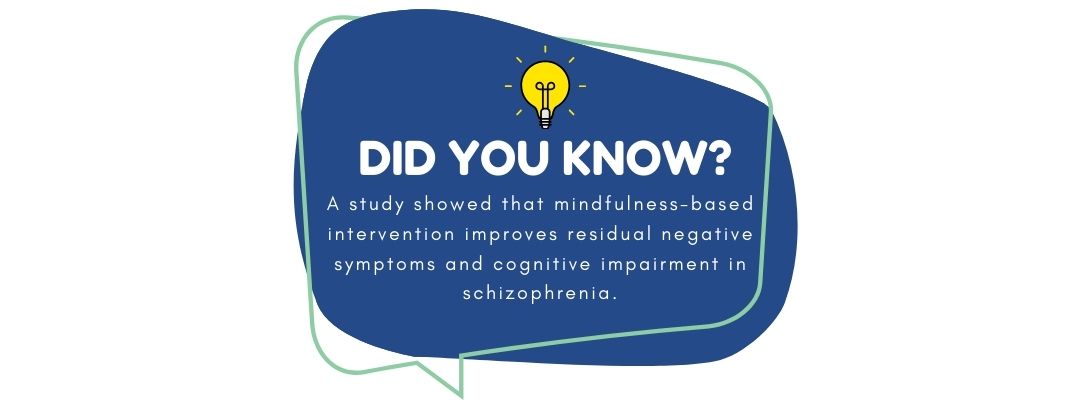Can Meditating Help Schizophrenia: Exploring the Benefits and Evidence
Can meditating help with schizophrenia? Meditation is often suggested as a way to improve mental health, but can it truly help those with schizophrenia? Research indicates that meditation may provide a pathway for improved well-being, particularly by reducing anxiety and promoting self-acceptance in individuals managing schizophrenia. With a variety of techniques available, it has become a topic of interest for both clinicians and patients seeking alternative ways to cope with this complex condition.
As mental health awareness grows, many people are exploring holistic approaches alongside traditional treatments. Mindfulness meditation, in particular, has shown promise in potentially altering brain structures related to psychological well-being. While it is not a replacement for prescribed medications, it might serve as a useful complement to conventional therapies.
Understanding the nuances of how meditation interacts with schizophrenia can empower individuals and their support systems. This article will explore the potential benefits and challenges of meditation for those affected by this mental health condition.
Key Takeaways
- Meditation may help reduce anxiety for individuals with schizophrenia.
- Mindfulness techniques can complement traditional treatment methods.
- Safety and individual experiences with meditation vary and should be considered.
Understanding Schizophrenia
Schizophrenia is a serious mental illness that affects how a person thinks, feels, and behaves. It is characterized by a range of symptoms that can disrupt daily life. Understanding the symptoms and diagnostic methods, along with current treatments, is vital for effective management.
Symptoms and Diagnosis
The symptoms of schizophrenia can be divided into three categories: positive, negative, and cognitive.
- Positive symptoms include hallucinations, delusions, and thought disorders.
- Negative symptoms refer to a lack of motivation, reduced emotional expression, and social withdrawal.
- Cognitive symptoms can affect memory, attention, and the ability to process information.
Diagnosis typically involves a thorough medical evaluation. Mental health professionals may use interviews and questionnaires to assess symptoms. They often follow guidelines from the DSM-5, which outlines specific criteria for a diagnosis. Diagnosing schizophrenia usually requires observing symptoms for at least six months.
Current Treatments and Therapies
Current treatments for schizophrenia often combine medication and therapy. Antipsychotic medications are commonly prescribed to help manage symptoms. These drugs can be effective for many, but only about 30% of patients find complete relief.
In addition to medication, psychotherapy plays an important role in treatment. Cognitive Behavioral Therapy (CBT) can help patients manage their symptoms and improve their quality of life. Support groups and family therapy can also provide valuable assistance.
Alternative therapies, such as meditation, show promise in reducing anxiety and improving self-acceptance, but more research is needed. Each treatment plan should be tailored to the individual’s needs for the best outcomes.
The Role of Meditation in Schizophrenia: Can Meditating Help Schizophrenia
Meditation practices have grown in interest for their potential impact on mental health, including schizophrenia. These practices may offer ways to cope with symptoms and enhance emotional well-being among patients. Various types of meditation focus on mindfulness and acceptance, which can be beneficial.
Types of Meditation Practices
Several meditation methods can be helpful for individuals with schizophrenia. Mindfulness Meditation focuses on being present and observing thoughts without judgment. This practice encourages acceptance of difficult feelings.
Transcendental Meditation involves repeating a mantra to achieve a calm state and reduce stress. This technique aims to quiet the mind, which can be useful for those experiencing psychotic symptoms.
Loving-Kindness Meditation promotes feelings of compassion towards oneself and others. This practice can improve social connections and reduce feelings of isolation.
Potential Benefits for Schizophrenia Patients
Meditation can offer several advantages for those with schizophrenia. First, it may help reduce anxiety, providing individuals with tools to cope with distressing symptoms. Many patients report feeling more centered and less overwhelmed by their thoughts.
Additionally, meditation can foster a sense of self-acceptance. By learning to observe thoughts and emotions without judgment, individuals may experience less shame about their condition. Some studies suggest that regular practice could lead to a more stable mood and improved overall quality of life.
Meditation also encourages better focus and awareness. This can be particularly helpful in managing symptoms like disorganized thinking. Enhanced mindfulness can lead to fewer episodes of distressing thoughts.
Scientific Research Findings
Research supports the idea that meditation can positively affect individuals with schizophrenia. A study highlighted that mindfulness meditation improves coping strategies and reduces anxiety among patients. These strategies allow them to respond to psychotic experiences with greater ease.
Another investigation suggests that mindfulness practices may lead to changes in brain structure. This could help some patients better manage their symptoms. Results indicate improvements in emotions and thought patterns among those who engage in regular meditation.
Further studies have shown the effectiveness of mindfulness-based interventions in reducing the severity of psychotic symptoms. Participants often report feeling more in control and less influenced by their experiences. This research points to meditation as a valuable tool in the management of schizophrenia.
Meditation Techniques and Safety Considerations
Meditation can offer valuable benefits for individuals with schizophrenia. However, it is essential to understand the specific techniques used and the safety measures necessary for effective practice. Below are some important aspects to consider.
Mindfulness and Awareness Techniques
Mindfulness meditation focuses on being present in the moment. It encourages individuals to observe their thoughts and feelings without judgment. This practice can help reduce anxiety and improve self-acceptance for those with schizophrenia.
A simple technique is the breath awareness exercise. In this practice, a person focuses on their breathing. They can count each inhale and exhale, helping to anchor their attention.
Another approach is body scanning. This involves mentally scanning the body for tension and relaxing those areas. It promotes awareness of physical sensations, which can help individuals connect with their bodies and reduce stress.
Managing Expectations and Limitations
It is crucial for individuals to manage their expectations regarding meditation. While it can provide relief, meditation is not a substitute for professional treatment. Patients should continue their prescribed therapy and medication.
Meditation can take time to yield results. Practicing regularly for short periods is often more effective than long sessions. Individuals may focus on just five to ten minutes daily. This gradual approach allows time to adapt and notice any changes.
Moreover, some people may experience discomfort during meditation. It is important to recognize personal limits and stop if symptoms arise. Listening to one’s body is essential.
Risks and Precautions
While meditation is generally safe, certain risks exist, particularly for those with schizophrenia. Some individuals may develop heightened anxiety or distress during meditation. This can occur when confronting difficult emotions or thoughts.
To mitigate these effects, it can be helpful to meditate in a supportive environment. Practicing with a trained instructor or therapist can provide guidance and reassurance.
Additionally, those with a history of severe symptoms should approach meditation cautiously. Always consult with a healthcare provider before starting any new practice. This ensures that meditation aligns with overall treatment plans and addresses individual needs.
Frequently Asked Questions
Meditation can play a valuable role in managing symptoms of schizophrenia. Several aspects of meditation offer benefits, while specific techniques may enhance its effectiveness in treatment plans. Understanding potential support and challenges is key for those considering meditation as part of their overall approach. These questions are commonly asked by those who may be asking can meditating help schizophrenia.
What benefits does meditation offer in managing schizophrenia symptoms?
Meditation can help reduce anxiety and improve self-acceptance in individuals with schizophrenia. Research shows that it can promote relaxation and enhance emotional well-being.
Are there specific types of meditation recommended for individuals with schizophrenia?
Mindfulness meditation is often recommended for individuals with schizophrenia. This practice focuses on being present and aware, which can help individuals manage their thoughts and feelings.
How can mindfulness practices be incorporated into the treatment plan for schizophrenia?
Mindfulness practices can be integrated by setting aside specific times during the day for meditation. Simple breathing exercises or guided imagery may also be included to support overall mental health.
Is there evidence to support the use of meditation as a complementary therapy for schizophrenia?
Research indicates that meditation may change brain structure and function positively. Studies suggest it can be effective alongside traditional treatments for schizophrenia, helping to enhance quality of life.
What techniques can help someone with schizophrenia use meditation effectively?
Techniques such as starting with short sessions and focusing on the breath can be effective. Using apps or attending classes may also provide guidance and structure.
Can meditation have any adverse effects on those with schizophrenia?
While meditation can be beneficial, some individuals may experience challenges. It’s important to monitor for increased anxiety or discomfort during practice and consult a healthcare provider if necessary.
Conclusion: Can Meditating Help Schizophrenia?
Meditation can serve as a valuable complementary tool for individuals with schizophrenia, offering benefits such as reduced anxiety, improved self-acceptance, and enhanced emotional well-being. While it is not a substitute for traditional treatments like medication and therapy, incorporating mindfulness practices into a broader care plan can provide meaningful support for managing symptoms.
However, meditation is not without its challenges. Safety considerations, personalized guidance, and realistic expectations are essential to ensuring its effectiveness. Consulting with a healthcare provider before starting a meditation practice is critical, especially for those with more severe symptoms.
By integrating meditation thoughtfully and cautiously, individuals with schizophrenia can explore its potential to foster a greater sense of balance, resilience, and control in their daily lives. Continued research and education on this holistic approach will further illuminate its role in mental health care.
You’re not alone, and help is always within reach. Contact us today at (774) 619-7750 and take control over your mental health.





